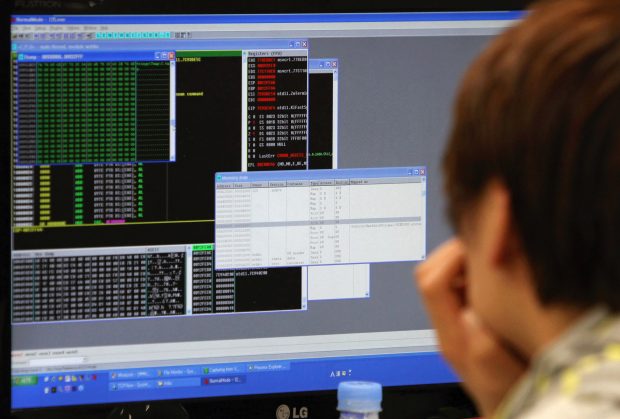The Era of Wars Through the Internet
Cyberage is turning into a monster of our own making. How it will reverberate is any body’s guess, going by various developments that are taking place around the world.
That the internet would be the savannah for development and governance was the big hope we had. The chances that it will be used more for criminal and political purpose, even impacting democracies worldwide, are now quite high.
Some incidents are worth noting in this context.
In early 2000, a 15-year old boy first put Cyber Crime on the radar. ‘MafiaBoy’ managed to hack into (words we better get used to!) major sites that had heavy traffic: CNN, Yahoo, Amazon, Dell, eBay, eTrade. Canadians, Americans – and the world – got their first jolt of what has culminated in the alleged Russian hack-and-dox strategy during the American Presidential election.
Through the early days, even Microsoft was not spared. Around 2003, a lightning-fast worm called Slammer, hit the Microsoft SQL Server. Between Bank of America, Washington Mutual ATM and Continental Airlines, an estimated 75,000 unpatched servers crashed. Even a nuclear power station in the USA lost its safety monitoring system.
This was the time when hackers came to be known as Black Hats. They created and propitiated an entire cyber underground world. It was a world where hackers and fraudsters could buy and sell data, fake IDs, specialised underground services, even stealing upto 2 million credit cards for fraudulent transactions.
State-of-art encryption and peer-to-peer updating slowly started going for a toss in the face of hackers, who were always ahead. An expert group of coders, said to be based in Ukraine, defied security researchers. By 2009, the Money Mules of the erstwhile Soviet Empire, were wreaking havoc with small online businesses. According to FBI, they racked up more than 100 million dollars in online credit card theft.
Into this world came another kind of theft that was meant to be in public interest. It included the likes of Julian Assange and Edward Snowden. The courageousness of these tall figures can only be countered with the issue of the simple possibility of intruding into what we believe are very secure, protected systems.
It was but natural that soon FBI’s Most Wanted list was not topped by terrorists, drug dealers and the like but by cyber criminals. Among the top ten are Russians, a Romanian, Pakistanis and an American of Indian origin. Accused of crimes ranging from fake online products to stealing proprietary market data.
It would not be long before Cyber Attacks became a political tool – cheap and difficult to trace or pin down. North Korea is an outstanding example of using Cyber Attack for adversaries and critics.
On the eve of the release of a film, ‘The Interview’, about an assassination attempt on the North Korean President, SONY was allegedly hacked by a group called Guardians of Peace. The developments after the hack were interesting to say the least. FBI confirmed North Korea was behind the hack. North Korea faced almost 100 hours of outage that affected internet connectivity. North Korea blamed USA for it and denied it had any role in the SONY hack. US President imposed further sanctions on North Korea.
Such a strong step was missing from the US President when news of Russia interfering with the election process in USA came to light. At the tail-end of his presidency, Obama was probably at a loss to do a balancing act between accusing Russia and keeping options open for dialogue on Syria to avoid nuclear war.
Recent revelations have led to a stronger stand. In early December, Obama ordered a full review of hacking to influence the US elections that will go back to 2008. One Republican Senator leading the lobby for investigation claimed on CNN, “I’m going after Russia in every way you can go after Russia. I think they’re one of the most destabilizing influences on the world stage, I think they did interfere with our elections, and I want Putin personally to pay a price.”
The point is not the action being taken now. The point is, we did not see the writing on the wall. There was just so much happening out there in the world of Cyber Crime that remained unnoticed and unattended to for too long. The result is a host of hackers, who are super cyber experts across the world and can slink into any system, anywhere. They are difficult to trace and if traced, it can be years to catch them at a site with their computers.
Welcome to a world where wars will be fought over and through the Internet.











































